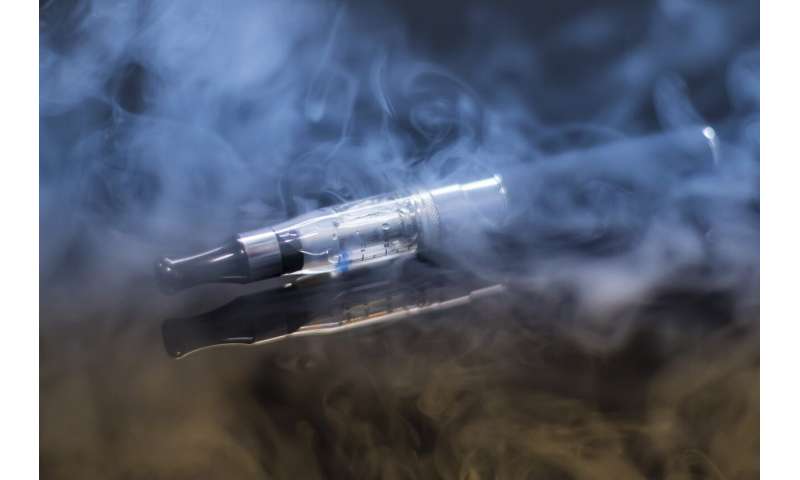
A potential carcinogen that has been banned as a food additive is present in concerningly high levels in electronic cigarette liquids and smokeless tobacco products, according to a new study from Duke Health.
The chemical—called pulegone (pronounced pju-leh-goan) – is contained in menthol and mint flavored e-cigarettes and smokeless tobacco products. Because of its carcinogenic properties, the U.S. Food and Drug Administration banned pulegone as a food additive last year in response to petitions from consumer groups.
Yet the agency does not regulate the chemical’s presence in e-cigarettes and smokeless tobacco, which are promoted as safer alternatives to regular cigarettes.
“Our findings suggest that the FDA should implement measures to mitigate pulegone-related health risks before suggesting mint- and menthol-flavored e-cigarettes and smokeless tobacco products as alternatives for people who use combustible tobacco products,” said Sven-Eric Jordt, Ph.D., a professor of the Department of Anesthesiology at Duke and lead author of a study publishing online Sept. 16 in JAMA Internal Medicine.
Jordt and research partner Sairam V. Jabba became interested in the topic because the U.S. Centers for Disease Control and Prevention published studies showing that mint- and menthol-flavored e-cigarette liquids and smokeless tobacco products marketed in the U.S. contain substantial amounts of pulegone.
The two researchers analyzed whether several top brands of regular menthol cigarettes, three e-cigarette brands, and one smokeless tobacco brand contain enough pulegone to be a cause for concern. They compared the CDC-reported amounts of pulegone with the FDA’s exposure risk data—the levels at which exposure-related tumors were reported in animal studies.
Their analysis found that the levels in the e-cigarettes and smokeless tobacco exceeded the thresholds of concern. Regular menthol cigarettes contained levels below the thresholds.
“Our analysis suggests that users of mint- and menthol-flavored e-cigarettes and smokeless tobacco are exposed to pulegone levels higher than the FDA considers acceptable for intake in food, and higher than in smokers of combustible menthol cigarettes,” Jordt said.
“The tobacco industry has long known about the dangers of pulegone and has continuously tried to minimize its levels in menthol cigarette flavorings, so the levels are much lower in menthol cigarettes than in electronic cigarettes,” Jordt said. E-cigarette manufacturers may be less familiar with the dangers and use cheaper ingredients to lower costs.
Source: Read Full Article
